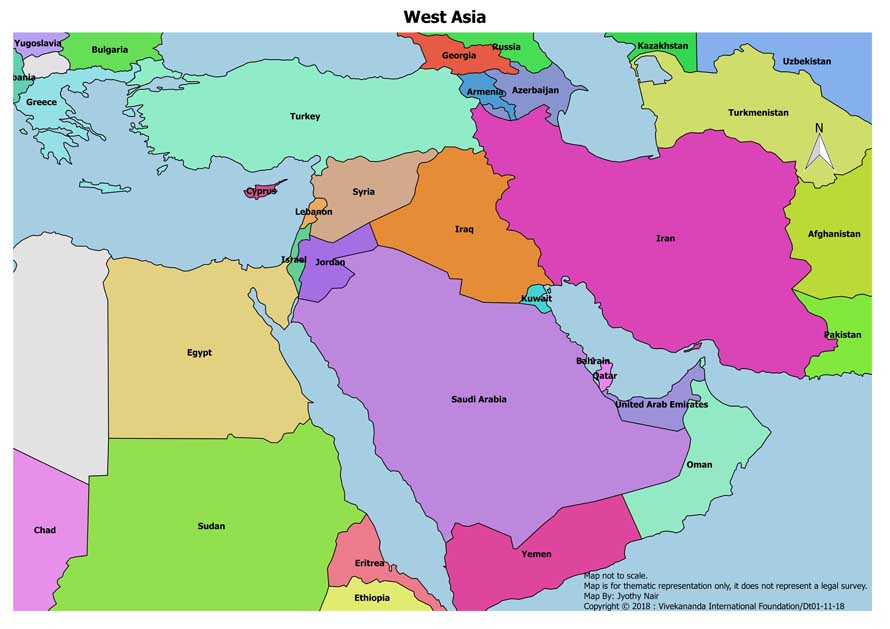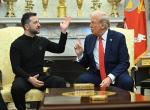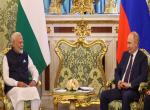ABSTRACT:
China-Iran deal announced earlier this month continued to reverberate through the continent and elsewhere that has been dictated by the enhanced US-China and US-Iran rivalry. The proposed 25 years Agreement , which has been in the offing since 2016 visit of Xi Jinping to Tehran, Riyadh and Cairo) that encompasses trade, energy supplies, infrastructure, telecommunications and wide ranging defence cooperation involving nearly $400 bn in investments through the BRI corridor. Former hardliner President Ahmadinejad decried it as a sell out to China. Around the same time Tehran decided to go ahead alone to complete the Chabahar-Zahedan Railway line as India prevaricated in completing the project that was signed in 2016 during the visit of PM Modi to Tehran when a trilateral agreement was signed between Iran-India and Afghanistan. Although Iranians downplayed it by saying that India could join at any stage the vibes indicated to Iranian frustration with delays by India due to US sanctions and their being propped up by the Chinese renewed vigour to invest. Eventual optics was negative.
Turkey–Egypt continued to spar in the Libyan conflict where they are supporting the opposing sides. Pursuant to their protégé General Khalifa Haftar losing Tripoli and nearly strategic Sirte as a result of direct intervention by Turkey in favour of the internationally recognised Government of Serraj that is supported by Islamists and Tripoli based GNA (Government of National Accord). President Sisi at first tried to enforce a ceasefire and some dialogue but that was rejected by Tripoli. Subsequently the Egyptian Parliament authorised the military deployment and intervention in favour of Tobruk based Government and Khalifa Haftar which was opposed by most countries except UAE and Saudi Arabia despite their being embroiled in an unwinnable war in Yemen. Regional countries like another Libyan neighbour Algeria were vehemently opposed and the Saudi Foreign Minister visited Cairo and Algiers so pacify. Cairo as such is saddled in a rift with Ethiopia and Sudan over the Renaissance Dam by Addis Ababa. EU led by French and Italians started more intensive patrolling in the Mediterranean to prevent further arms smuggling. Russia and Turkey held High level consultations and agreed to maintain ceasefire and work for an intra-Libyan dialogue asserting the territorial integrity of the already divided Libya into rival influence zones.
Moreover, Turkish division of the Maritime Economic Zone with Libya ( not recognised by Tobruk based House of Representatives) in accordance with their November agreement for Eastern Mediterranean created another conflict with Greek and Cyprus supported by EU. Berlin Process of January remains nascent as none of the major spoilers are ready to give in for their own ulterior geo-political and geo-economic interests.
Iraq-Iran tried to mend fences as FM Zarif visited Baghdad and the new Iraqi PM Khadimi visited Iran, after key discussions with the Americans, and sought assurances that Iraq will not become their battleground as bilateral relations proceed smoothly. He said Iraqis want exceptionally close relations and visit was seen as a turning point. He also met the Spiritual leader. Kadhimi has been able to get support both from Washington and Tehran. He assured Rouhani that Iraq will not be used against Iran even as missile attacks on US locations in Iraq continued. Relations with US have taken another ugly turn as US jets tried to corner and scare an Iranian Mahan Air flight which was forced to land in Lebanon injuring several passengers. Tehran called it a US ‘Terrorist act”. During the month several Iranian nuclear and other important installations were caught in mysterious fires and explosions. As a result of such an attack on centrifuges facility it was estimated that the Iranian nuclear programme may have been delayed by at least two years. US continued to increase its maximum pressure by more sanctions. Even Israeli attacks against Hezbollah and against Iranian ammunition depot termed as “the war between wars” military strategy have not evoked equal and opposite reaction except Cyber wars , since Tehran is said to be biding its time until the US election .
In Yemen the Southern Transitional Council (STC) supported by UAE, decided to withdraw its demand for self-rule and independence as a result of the Riyadh Agreement. A new Governor and Police Commissioner were appointed. The STC will become part of the unified government. Meanwhile US Secretary of State Pompeo welcomed the developments which could lead to resolution of a five year old war by keeping a “unified, prosperous and stable Yemen”. Saudi Arabia has been trying to shut the war down but Iran backed Houthis have been continuing their intransigence.
In a video conference Iran, Turkey and Russia, on opposing sides in the conflict in Syria, agreed to coordinate their efforts to reduce tensions through a political process, intra-Syrian dialogue and provision of humanitarian relief. They reiterated that there was no military solution possible in Syria. Meanwhile, Syria conducted parliamentary elections despite criticism.
A proposed Kuwaiti Law substantially reducing the intake of foreign workers, created a disconcert among the foreigners . Some reports indicated that nearly 800000 Indians may have to return as the local government reduces its public expenditure due to Covid-19 impact and generates employment for its own citizens.
MORE DETAILS….
Israel-Hezbollah clash
Israel on 20 July 2020 conducted air strikes at a weapons depots and military positions outside Damascus killing five including Hezbollah operative, Ali Kamel Mohsen Jawad. Seven Syrian military personnel were attacked in the attack. The strike was part of Israel’s strategy to dismantle Iranian entrenchment within Syria. Subsequently, on 27 July, Israeli military spokesperson, Brig. Gen. Hidai Zilberman announced that three to five Hezbollah operatives attempted to infiltrate Israeli territory by crossing the Blue Line. Israel reacted by firing machine guns and tank shells. Moreover, one Israeli drone assigned to monitor the activities of Hezbollah crashed inside Lebanese territory on 27 July. There were also reports of exchange of fire near the disputed Shebaa Farms and Hezbollah reportedly used Kornet anti-tank guided missile to strike at an IDF military tank.
Hezbollah however denied that it carried out any infiltration attempt suggesting that Israel is spreading false information to create ‘false victories’. In case of exchange of fire, Hezbollah suggested that Israel initiated the fire exchange. Hezbollah’s last limited escalation with Israeli forces occurred in September after Hezbollah fighters fired missiles at military ambulance. It is highly likely that Hezbollah may pursue limited escalation. However, the chances of full-scale war is small due to the current economic and political circumstances within Lebanon as well as Israel facing anti-government protests against Prime Minister Benjamin Netanyahu’s handling of the COVID-19 crisis and corruption charges.
Iran-Iraq relations
Iranian Foreign Minister Javad Zarif visited Baghdad on 19 July ahead of the Iraqi Prime Minister Mustafa al-Kadhimi’s planned trip to Saudi Arabia. The trip to Saudi Arabia was however cancelled after King Salman was hospitalised. It was largely seen as an act of reinforcing its political and economic relations with Iraq and restoring the strategic balance in favour of Iran. Iraq is seeking to emerge as a power broker between Iran and Saudi Arabia and contribute to peace and stability. There have been reports of tussles between Iraqi forces and Iran backed militia Kataib Hezbollah. In June, Iraqi security forces arrested Kataib Hezbollah fighters on charges of mortar and rocket attacks against the US based installations. It was the first visit by the Iranian Foreign Minister since the killing of General Qassem Soleimani in January of this year. Zarif asserted that Iran-Iraq relations would not be shaken despite the death of Soleimani. During Zarif’s visit, there were reports of mortal attack in the Green Zone near the US embassy.
After the trip to Saudi Arabia was cancelled, the Iraqi Prime Minister decided to visit Iran on 21 July. It was the first foreign trip for the new Iraqi Prime Minister. Al-Kadhimi was accompanied by the ministers of foreign affairs, finance, health and planning and the national security adviser and discussions covered wide range of topics such as security, economic engagement and reconstruction etc.
Southern Transitional Council (STC) withdraws demand for self-rule
The Southern Transitional Council backed by the UAE has abandoned its demand for self-rule. The STC has been as crucial ally for the Saudi Arabia and the UAE led coalition against the Houthis movement currently in control of Sanaa. The ground forces offered by STC have deterred the expansion of the Houthi forces in south Yemen. The STC after securing ground in southern Yemen took political control over Aden. STC in the previous months had captured the government institutions and were the de-facto rulers in southern Yemen. STC also took control of the strategic Socotra Island in June. The divergent political interests between the Hadi government and the STC had widened the cleavage between Saudi and the UAE’s interests in Yemen.
On 29 July, Nizar Haitham, a spokesman for the STC announced to comply with the Riyadh agreement brokered by Saudi Arabia in November 2019. The STC agreed to implement the power-sharing deal in which a 24 member technocratic government would be appointed and divided equally between northerners and southerners. The governor and director of security would be appointed for Aden, the interim capital and all the state revenues would be deposited in the Central Bank of Aden. The militias under STC’s control would be incorporated into the Ministries of Interior and Defence under the Hadi government. The government and STC forces are also required to vacate Aden city within 30 days and security of the city would be under the control of Saudi Arabia. The Saudi efforts are aimed at restore order within the coalition and redirecting focus towards defeating the Houthi movement.
Egypt and Turkey’s contest in Libya
Turkey’s military help towards the internationally recognised Government of National Accord (GNA) has been instrumental in thwarting General Khalifa Haftar’s siege of Tripoli. Haftar had launched its military campaign to takeover Tripoli in April 2019. The GNA forces after being initially cornered have succeeded to bounce back and retake several crucial cities and towns in western Libya. Turkey’s complicity in GNA’s military success has aggrieved Haftar’s backers including Russia and Egypt. GNA intends to take control of Al-Jufra airbase and Sirte town from Haftar’s control. Russia has a fleet of 14 MiG-29 Fulcrum jet fighters and Su-24 Fencer bombers to Haftar’s forces in late July to safeguard Al-Jufra base.
Egypt under Abdel Fatah Al Sisi is also closely watching the developments and warned that GNA’s plan to take over the air base would constitute as red lines and threat to national security. The Egyptian President also secured approval from the parliament to launch military campaign against the GNA. Egypt at the same time is aware of the risk of direct military engagement. Therefore, it has proposed ceasefire and appointment of a newly elected presidential body representing the three Libyan regions. Russia has backed the ceasefire. The GNA which is at a militarily advantageous position currently has rejected the ceasefire offer.
China-Iran economic relations
China and Iran have indicated to conclude a 25 year strategic partnership agreement under the framework of 2016 agreement namely, Comprehensive Strategic Partnership between both states. The agreement would offer preferential access to China for development in numerous sectors such as transport, logistics, defence and security sectors. Iran is optimistic that China’s increased engagement would offer a new leash of life in its cash strapped economy suffering US imposed economic sanctions. Chinese investments are likely to increase in telecommunications, transport sectors such as airports, railways, highways and development of free trade zones. Reportedly, the economic and security deal would be worth US$ 400 billion.
UAE’s Mars Mission
In a significant boost to the United Arab Emirates’ space program, the Hope probe was launched on an H2-A rocket from Tanegashima spaceport in Japan. The stated objective of the Emirate Mars Mission are to understand the climate dynamics and the global weather map by characterising the lower atmosphere of Mars; understand how the weather changes the escape of hydrogen and oxygen through correlating the lower atmosphere conditions with the upper atmosphere and study the structure and the variability of hydrogen and oxygen in the upper atmosphere as well as understanding why Mars is losing them into space. The probe covering a distance of 500 million kms is destined to reach Mars in February 2021 to coincide with the UAE’s 50th anniversary.
The project has been heralded as a major step to project the Gulf state as a space and technology power house and compliment its plans to diversify its economy towards non-oil sector. In July, the US and China have also launched probes to Mars.
(The paper is the author’s individual scholastic articulation. The author certifies that the article/paper is original in content, unpublished and it has not been submitted for publication/web upload elsewhere, and that the facts and figures quoted are duly referenced, as needed, and are believed to be correct). (The paper does not necessarily represent the organisational stance... More >>












Post new comment